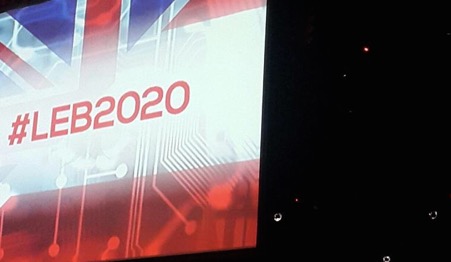Events & News

Just two days ago, the world’s political and business leaders, aid and civil society organizations gathered in Istanbul at the World Humanitarian Summit to collectively set a new agenda for global humanitarian action.
Whether it’ll turn out to be an opportunity to end “the greatest humanitarian crisis of our lifetime” or just another “fig leaf of good intentions” doing little to protect the planet’s most vulnerable people, international aid, whether humanitarian or for development, cannot contribute to the prosperity of any state if it doesn’t fall within a national strategy set by the state itself.
In Lebanon, the country is facing the most serious challenges of all times so that merely continuing to exist is seen as a success. The situation by nature is not new to Lebanon, a country that rarely knew phases of prosperity, and whenever it reaches a milestone in growth, it gets hit by a crisis, be it internal, regional or international. While confronting those many crises, many of which still have their spillover on our present and future, we became conscious that having and developing a civil modern state is the basis of any national agenda for the country’s growth.
Three main phases in Lebanon’s history had shaped the Lebanese will to have a strong just and capable civil state. First, it was the creation of Greater Lebanon in 1920 with the persistence of Patriarch Elias Howayek, considered to be the founder of Lebanon, and that’s when the journey has begun for what such a small but smart country can do to the world. Then, there’s the “era of state building and institutionalization” with the President Fouad Chehab in the ’60s, crowned by the “IRFED Mission Study” that constitutes the first and only official document drawing a national strategy that is actually holistic and based on scientific and pragmatic approach. The third prosperous phase is that of martyr Rafik Hariri, considered as the “era of achievements,” beginning with the reconstruction and development plan, in terms of human and physical infrastructure to the economic and social reforms that enabled Lebanon to regain its affluent position in the world map.
These were the times that gave the most hope for Lebanon to excel and show to the world the power of its people. Other efforts occurred across time, but they remained timid, narrow or incomplete. There’s been a lot of rhetoric but with no or little actionable effects.
Today, we have come to a state that’s not even stagnant anymore but rather pushing us backward and downward. The challenges we’re facing are multifaceted. Internally the situation seems hopeless, considering the lack of national consensus on presidential election, Parliament’s dysfunction and government’s many failures to run the country. Regionally, the conflicts surrounding us, from Palestine to Syria, Iraq, Libya and Yemen, are threatening the stability and security of the country. Internationally, terrorism and the world war against it has also spilled its curse on us.
We cannot solely solve such compulsory problems, beginning with the Israeli-Palestinian conflict to the Syrian refugees crisis or the international terrorism, but we can contain their adverse spills on our country, by having a common vision of our Lebanon, shaped by a national strategy of how Lebanon should be in the years ahead. That will certainly lead us to resolve many emergent micro and macro challenges.
In this regard, the initiative of the “Centennial of Greater Lebanon 2020,” led by MP Bahia Hariri in 2010 to open up a national dialogue on where Lebanon should be in the year 2020 and identify the main goals that will help the country achieve this vision can be a nationwide call to a deep change from within, based on actionable goals toward a civil modern state whereby justice prevails, rights are protected, innovation is the wheel and growth is the harvest. The initiative was often welcomed through its consecutive movements, notably the commemoration ceremonies for the anniversary of Greater Lebanon, first in 2013 at the Beiteddine presidential palace, then the Grand Serail in 2014 and lately in 2015 at the French ambassador’s residency.
Other inspirations in this direction were spotted, topped by the genuine initiative “Lebanon 2020” of Tom Fletcher, former U.K. ambassador to Lebanon and as he was quoted as saying, a “permanent ambassador for Lebanon.” Mr. Fletcher clearly showed his care about Lebanon and its future more than most of our Lebanese political, social and business leaders, calling us to turn our pessimistic challenges into possible windows of opportunity in order to keep our country a model for coexistence founded on uniting principles rather than lines of division. By his call to set our vision for Lebanon 2020, he’s urging us Lebanese to fight for the idea of Lebanon not over it, by looking less to outsiders and more to our own talents, less to our political affiliation and more to our patriotic belonging.
Yes Tom, it’s time for us to turn our back to external influencers for a while and gather to set up our own priorities channeling it into a national strategy while opening up to regional and international donors, of which the latest UKaid pledge to support development and crisis management in Lebanon. Your words, coming from an “outsider” are truthful, inspirational and reflective more than many of us the insiders, to the extent that they may help in bridging a historical wide gap that goes back to Sykes-Picot and even more to your ancestor Belfour. We wish you will indeed always be for Lebanon an ambassador of hope.
Dima El Hassan is Director of Programs at the Hariri Foundation for Sustainable Human Development.
